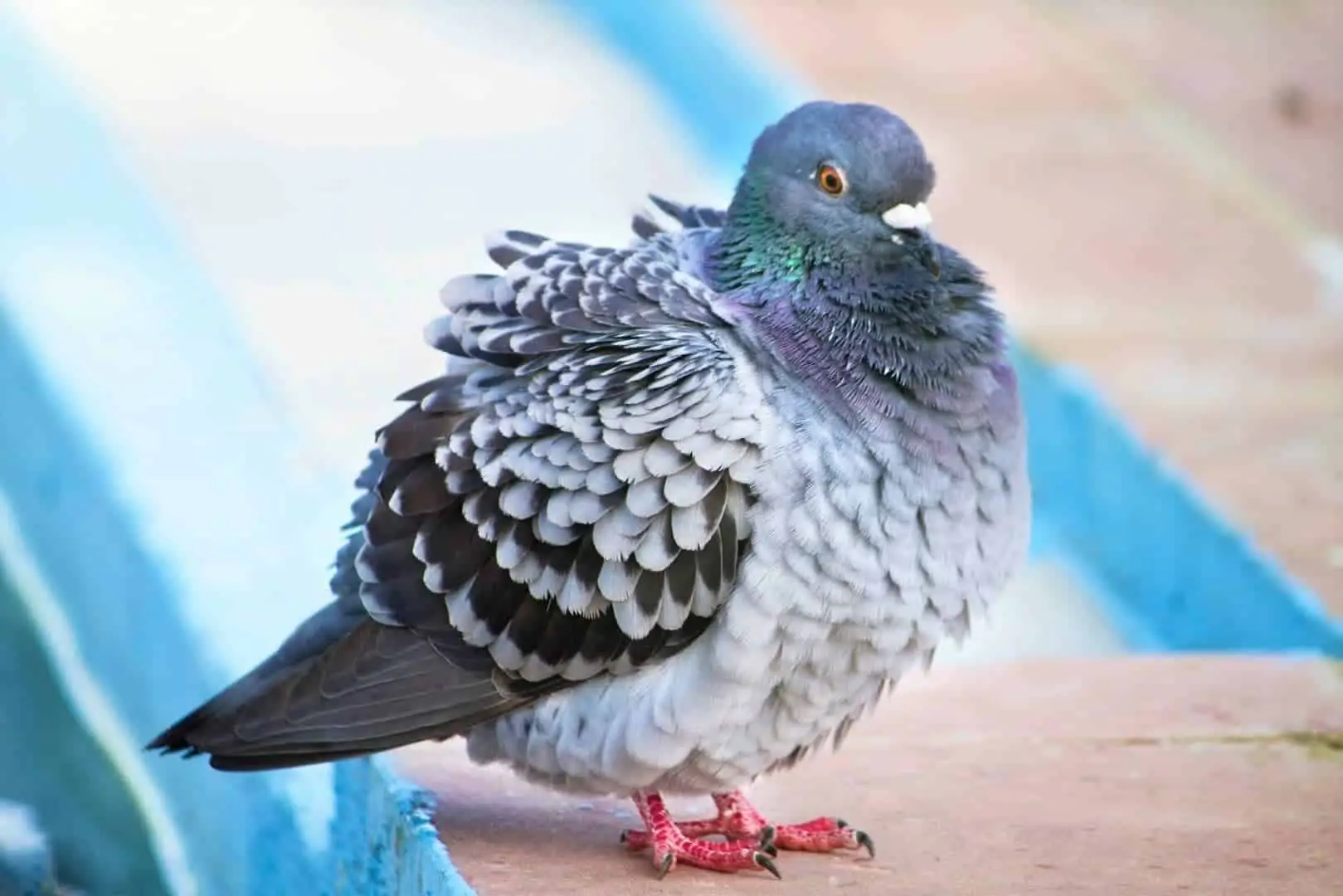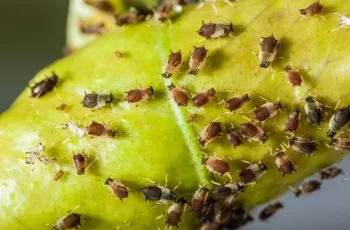As a pet owner knows, one of the most important considerations when choosing a new animal companion is lifespan. After all, no one wants to get attached to a pet only to lose them a few short years later.
African grey parrots are intelligent birds that make excellent lifelong pets for parrot lovers owing to their extremely long lifespan. The African grey parrot, regardless of its species, can live up to 40 to 60 years on average. However, their life expectancy depends on various factors, both in their natural habitat and in captivity. But how long do African grey parrots live? What is an African grey parrot’s lifespan?
While there are many things that can affect an individual bird’s life span, knowing what to expect can help bird owners prepare for the future. In this blog post, we’ll take a closer look at the African Grey parrot’s lifespan and what factors may affect it. Plus, how to help them live a long, healthy life.
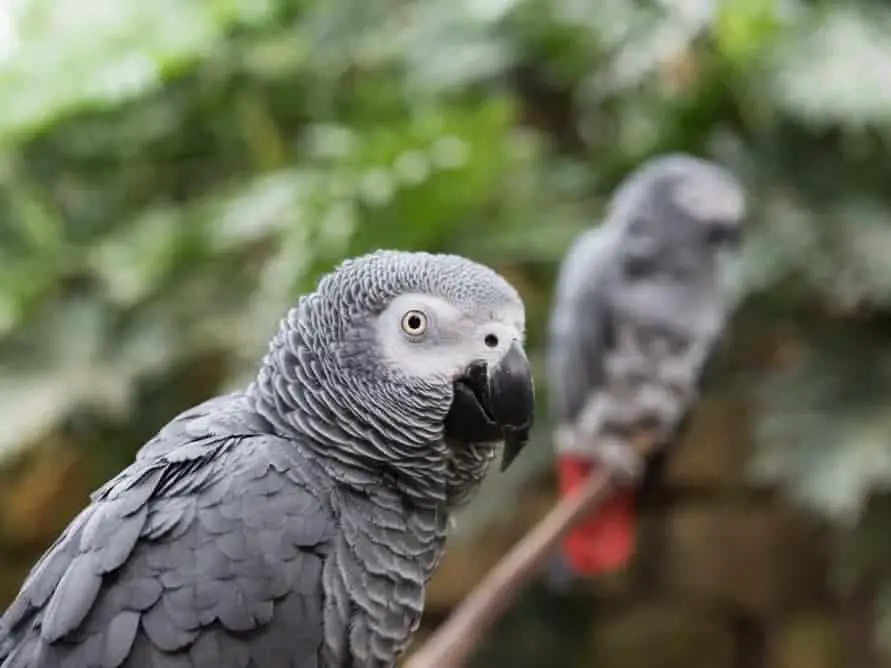
The Short Answer…
African Grey Parrots have an average lifespan of 40 to 60 years in the wild. However, they can live up to 80 years if they remain alive from dangers. African grey parrots in captivity live 20 – 30 years or more depending on how good you take care of them. In fact, they can out rank you in age.
Research on African Grey parrot lifespan has shown that they can live up to 100 years or more. This puts their life expectancy on par with some of the longest living bird species in the world.
How Long Do African Grey Parrots Live As Pets?
African grey parrots have two subspecies, the Congo African grey parrot and the Timneh African grey parrot. Both species look quite similar with their dark grey feathers and red tails. However, there is slight difference in their size, and beak and tail color. The Congo grey and Timnehs can also compared on varying cognitive skill levels. Despite the slight markers, the average life expectancy for both African greys remains the same.
The African grey parrot lifespan is around 40 to 60 years. As pets, the average African grey parrot lifespan is around 45 to 50 years, whereas in the wild thee African parrots only survive for an estimated 23 years.
Factors Affecting the African Grey Parrot Lifespan in Captivity
Keep in mind that we have discussed the average life duration for such species and it differs in captivity based on various factors.
Protection from Predators and Food Availability
The first major factor that dictates how long an African grey parrot will live is whether they are in the wild or captivity. Most African grey parrots live longer in captivity than they do in the wild.
The reason for an African grey parrot’s longevity as a pet is due to a consistent food availability and protection from predators due to human intervention. Keep in mind that African grey parrots can thrive in the wild and live for 60 years or more, given that they can manage to outsmart threats, from other animals.
Moreover, a 2016 study showed that these parrots that once flocked forests in West Africa have been decreasing in number due to pet trade (sometimes illegally sold as exotic pets) and habitat loss.
Proper and Diverse Diet
Even in captivity, you need to provide them with a balanced diet. In fact, regardless of the average lifespan, improper diet can cause a shortened life span.
For the African grey parrot to live a long and healthy life in captivity, they need a proper diet with diverse offerings they would find in the wild. You should include a mixture of nuts, seeds, fruit, vegetable, boiled egg for protein, and limestone or cuttlefish for calcium.
However, when kept as domestic birds, the African grey parrots are prone to obesity, which can cause various health issues and lower the bird’s age. Thus, diverse food and limited treats are an absolutely essential to maintain the healthy average weight.
Attention From Human Owners
This parrot is an amazingly intelligent species , yet many owners ignore the mental health aspect of keeping them as pets. If you sign up to keep these birds as pets, make sure you have plenty of time for them. These parrots demand attention and it’s often not easy to keep them satisfied. If they do not have enough social interaction, they resort to damaging behavior like feather plucking or screaming when stressed. Thus, do not underestimate the contribution of care from the owner to their longevity.
Moreover, if male and female (usually confirmed through DNA testing) parrots caged together after they reach sexual maturity, owners need to keep a watchful eye as makes can become rather domineering during the breeding season.
What was The oldest African Grey?
There is no clear record for the oldest African Grey parrot despite them famously having such long lives and usually being subjected to traumatic rehoming after their owner dies. A few sources claim that the Guinness book of records states that the oldest bird of this species lived for 72 years. However, we were unable to corroborate this from the official site.
Tarbu the African Grey
Even though this bird lives a long life under good conditions, we can only find one reliable and well-documented source of the oldest living grey bird. Tarbu, who died in 2012 at the age of 55, was considered the oldest grey parrot.
Even as it bid goodbye to the world, its owner confirmed that Tarbu’s last words were a testimony to this species’ remarkable intelligence. Before his death the subsequent morning, Tarbu bid farewell to its owner, saying a weak “Cheerio” at night.
Alex the Talking Parrot
Another long-living and perhaps even more famous African grey parrot is Alex, who lived to 31 before passing away in 2007. Alex’s cognitive progress was recorded in scientific journals, making him one of if not the most famous talking parrot ever. Alex was trained to speak almost 150 words and could recognize small numbers, colors, and shapes.
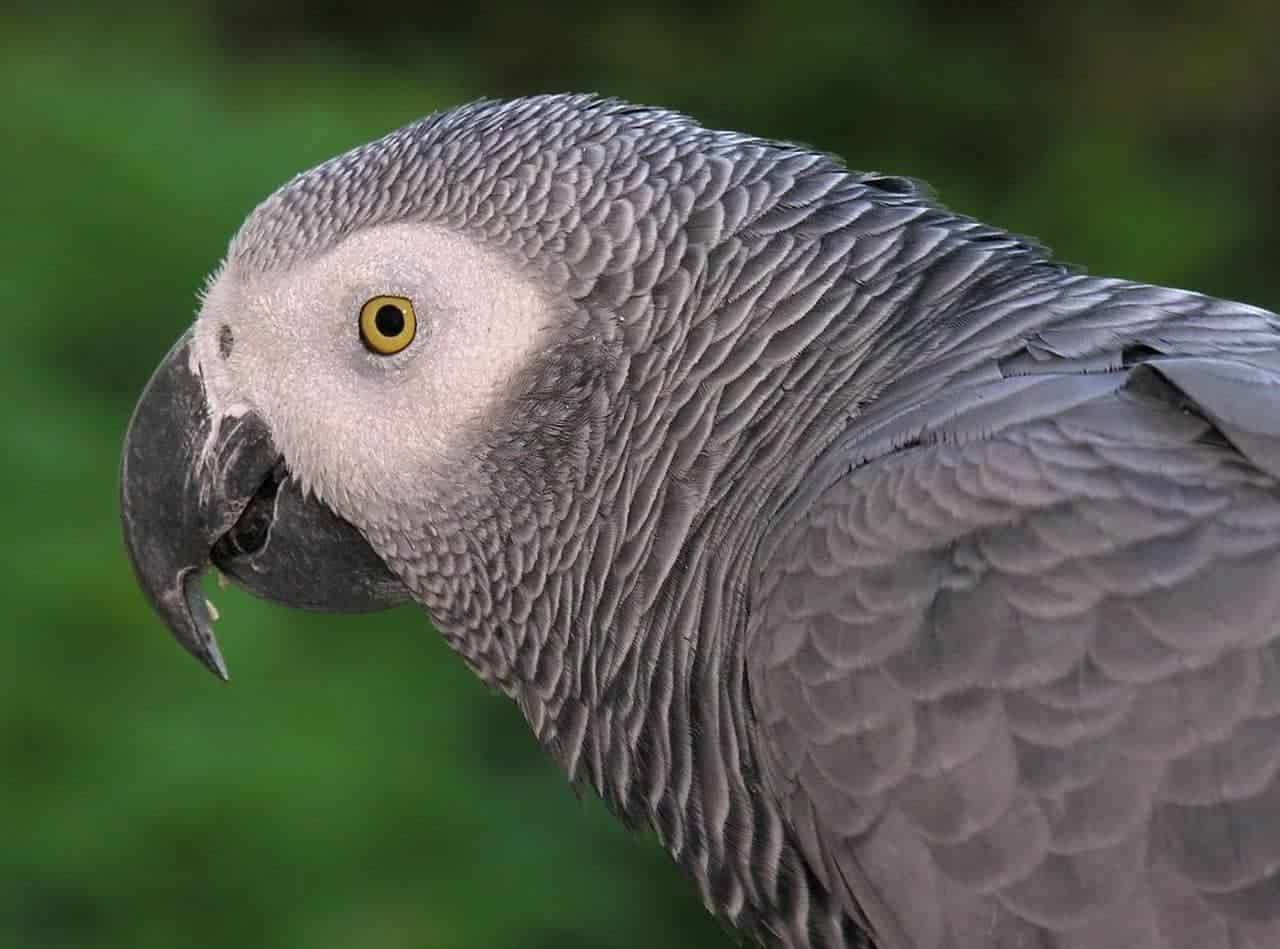
Why The Lifespan is Shorter In The Wild?
In the wild, however, the average lifespan is much shorter.
Due to predation and other factors, it is estimated that only 10% of African grey parrots live to be 10 years old.
While captive birds have the potential to live long lives, it is important to remember that they require a great deal of care and attention. A parrot’s lifespan can be significantly shortened if it does not receive proper nutrition, socialization, and medical care.
The second-longest living African Grey on record was a Congo Grey named Presley.
He was born in captivity in the early 1970s and lived to be over 50 years old. African Greys are one of the most popular pet birds, prized for their intelligence and ability to mimic human speech.
They are also known to bond strongly with their owners and can live for many years with proper care. While Presley doesn’t hold the record for the longest living African Grey, there are many other examples of these birds enjoying long and healthy lives.
With proper diet, housing, and veterinary care, an African Grey can be a beloved companion for many years to come.

Why Is The Lifespan Shorter In Captivity?
The lifespan of an African grey parrot in the wild is typically around 40 years, but in captivity, these birds often only live for 20 to 30 years. There are a number of possible reasons for this reduced lifespan in captivity, including their diet.
In the wild, these parrots consume a variety of foods that provide them with essential nutrients. In captivity, however, their diet is often more limited and lacking in key nutrients.
Additionally, African grey parrots are often subject to stress, lack of excercise and exposure to certain toxins in captivity, which can take a toll on their health. Finally, these birds are susceptible to a number of diseases and health problems that can be fatal if not properly treated.
While captive African grey parrots can live long and healthy lives with proper care, their lifespans are typically shorter than those of their wild counterparts.
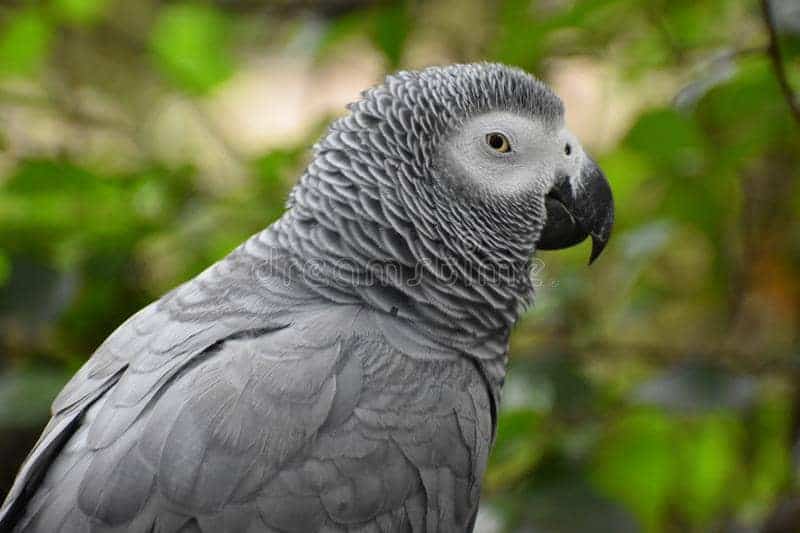
What is The Longest Living African Grey?
While Alex and Tarbu have passed away, there is one African grey who rose to popularity in the 10th season of America’s Got Talent – Einstein, the talking parrot. Even though the bird did not make it further in the show, it shot to national fame. In 2017, Einstein celebrated his 30th birthday in a Zoo in Tennessee.
Keep in mind that an African grey can live much longer. However, there are no such verified cases of living grey birds older than those mentioned here.
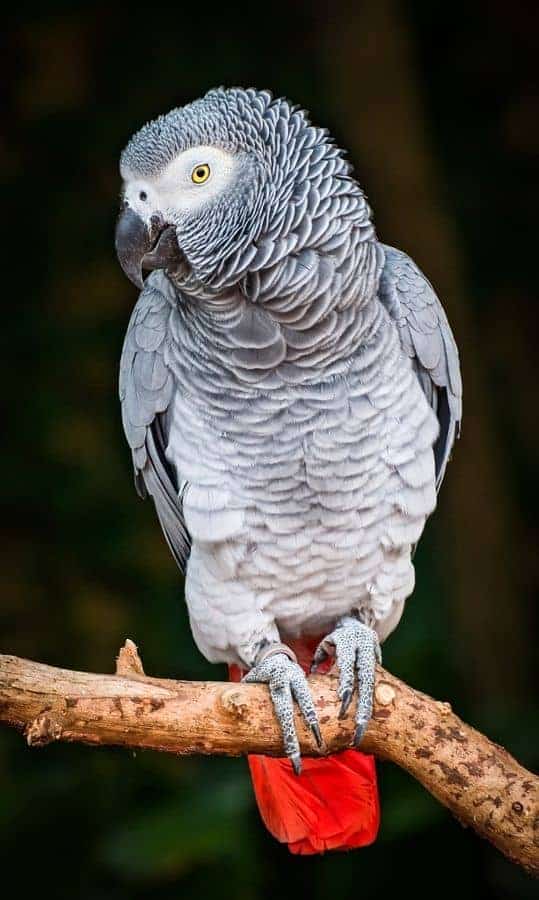
Do African Grey Parrots Live For 100 or More Years?
While African Greys can have a pretty long life, often outliving their owners, they still do not live to 100 years old. According to experts, this bird has a life expectancy of around 80 years. However, it is pretty uncommon. On the other hand, macaws can live up to 100 years or more.
How to Determine Age of African Grey Parrot?
What is The Oldest Parrot Alive Today?
The oldest bird alive today is Fred the Cockatoo, who is over 100 years old. Fred, the bird, celebrated its 100th birthday in 2014 and still lives in the Bonorong Wildlife Sanctuary in Australia. Fred came to its current home after the passing of its long-time owners.
Although incomparable to Fed, the African greys also have an impressive lifespan of 60 years. This makes them great companions for life. Just beware of their several needs, and you should be good to own one for a long time.
Which Bird Lives Longest? Which Bird Can Live 100 Years?
While Cookie is the oldest parrot alive today, he isn’t the oldest bird in general. That distinction belongs to a cockatoo named Wisdom, who was born in the wild in 1956 and is currently 62 years old. Cockatoos typically have a lifespan of 40-60 years, so Wisdom is definitely a long-lived bird!
Wisdom lives on the Midway Atoll in the Pacific Ocean, where she is often seen flying around and catching fish. She has even been known to land on the heads of unsuspecting tourists!
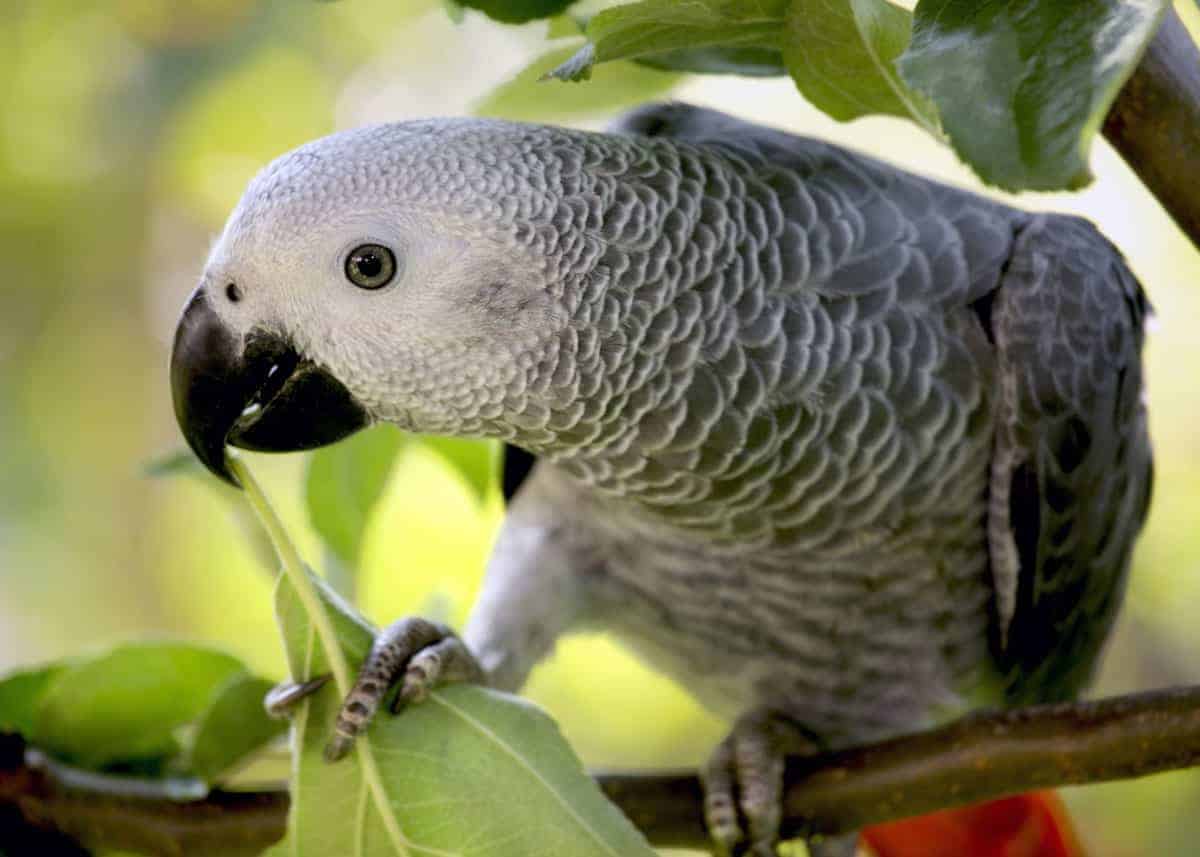
How to Take Care & Increase The Lifespan of African Grey?
While it’s impossible to know exactly how long your African Grey will live, you can expect a long and fruitful life full of joy if you take proper care of your feathered friend. Here are a few things you can do to ensure a long and healthy life for your African Grey.
First and foremost, make sure your African Grey has a nutritious diet. A diet of pellets, fresh fruits and vegetables, and the occasional treat will ensure your bird gets the vitamins, minerals, and nutrients it needs to stay healthy and strong.
Second, keep your African Grey’s cage clean and tidy. A clean cage will help prevent the spread of bacteria and illness, and it will also make your bird feel more comfortable and at home.
Third, provide your African Grey with plenty of toys and perches. Toys will help keep your bird entertained and active, while perches will give it a place to rest and exercise its feet.
Finally, take your African Grey to the vet for regular checkups. A yearly wellness exam is a good idea, and more frequent visits may be necessary if your bird is sick or injured.
By following these simple tips, you can help ensure a long and healthy life for your African Grey.
African Grey Price: How Much Does African Grey Parrot Cost?
It’s no secret that African Grey parrots are one of the most popular bird species kept as pets. They are known for their intelligence, ability to mimic human speech, and outgoing personalities. All of these factors make them wonderful companions.
However, potential African Grey comes with a hefty price tag. Depending on the individual bird’s age, coloration, and health, prices can range from $1500 to $2,000. While African Grey parrots are certainly not the cheapest pet option out there, they are definitely worth their price tag. These wonderful birds provide their owners with years of companionship and enjoyment.
What is The Size of the African Grey Parrot?
The average African grey parrot is about 33 cm (13 in) long, including the tail. The weight of a captive African grey parrot typically ranges from 400 to 600 g (14 to 21 oz). Some captive African grey parrots have been recorded as having weights exceeding 1,000 g (35 oz).
The size of wild African grey parrots tends to be slightly smaller than that of captive birds.
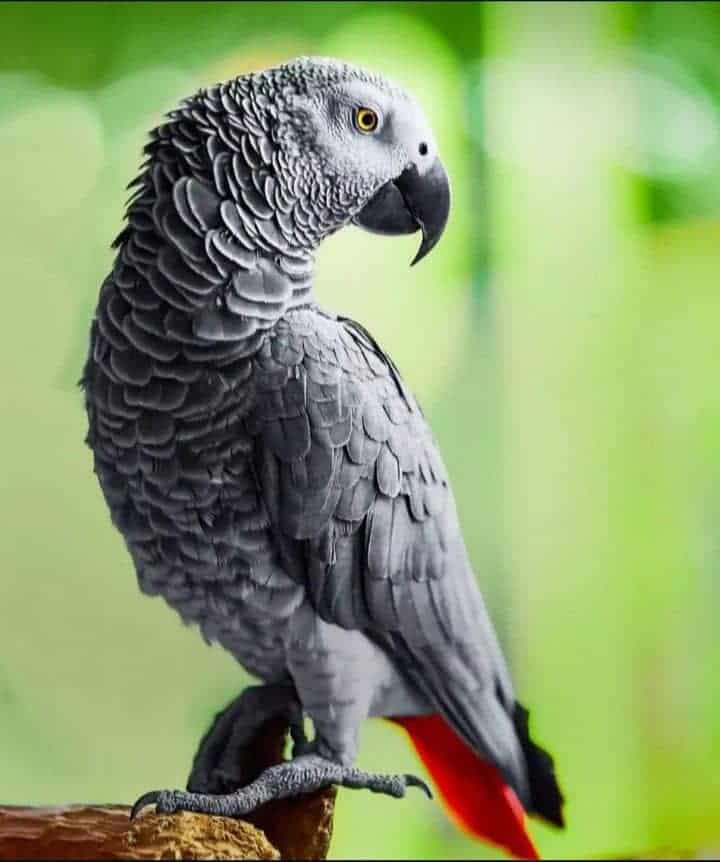
What Does African Grey Parrot Look Like? Appearance:
The African grey parrot is mostly grey with a white face and red tail. The color of the plumage can vary depending on the subspecies of African grey parrots. There are two main subspecies of African grey parrot: the Congo African grey parrot (Psittacus erithacus erithacus) and the Timneh African grey parrot (Psittacus erithacus timneh).
The Congo African grey parrot is the larger of the two subspecies, and its plumage is mostly grey with a lighter grey or white face. The Timneh African grey parrot is smaller than the Congo African grey parrot, and its plumage is mostly dark grey with a darker grey or black face. Here’s a photo of what the African Grey Parrot looks like.
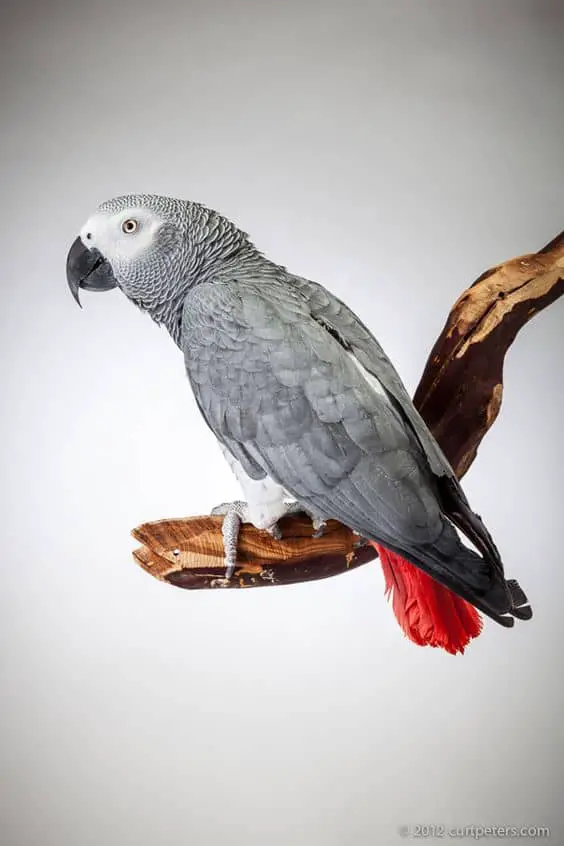
Which Other Birds Live Long?
While the African Grey Parrot is the longest-lived bird species on record, there are a few other bird species that come close. The Cockatiel, a small parrot native to Australia, has an average lifespan of 20 to 30 years.
However, there have been reports of Cockatiels living for over 40 years in captivity. The Budgerigar, or “Budgie”, is another long-lived bird species, with an average lifespan of 10 to 15 years. However, like the Cockatiel, there have been cases of Budgies living well into their 20s. And that was about the lifespan of African Grey Parrot and how long they live.
See Related:
- How Good Is Pigeon Eye? Can Pigeon See Color?
- Beautiful Oriental Roller Pigeon Breed: A Unique & Rare Breed of Pigeon
- The Maltese Pigeon: A Unique and Rare Breed of Pigeon (Photos)
- What Does “Dead Dove Do Not Eat” Mean? (Photos)
- Where Do Pigeons Sleep? In Trees? Here’s How… (Photos & Video)
- Do Pigeons Migrate In The Winter? Summer? To Where?

